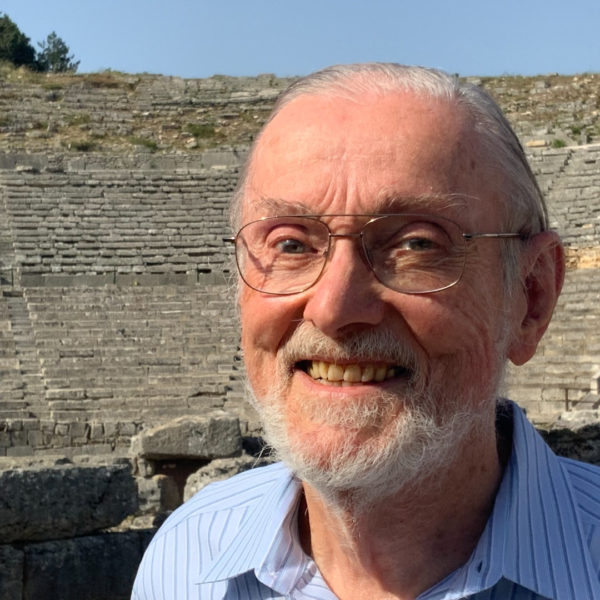Biography
During a long career, the research of Roland Allen has spanned many different areas, although the current focus is exclusively on theoretical high-energy physics -- for example, see "“Experimental signatures of a new dark matter WIMP”, EPL (Europhysics Letters) 134, 49001 (2021)(arXiv:2104.11715); "Potential for definitive discovery of a 70 GeV dark matter WIMP with only second-order gauge couplings", Letters in High Energy Physics LHEP-342 (2023) (arXiv:2210.15019); "An alternative form of supersymmetry with reduced cross-sections and modified experimental signatures” (arXiv:2307.04255); and “The cosmological constant, dark matter, supersymmetry, and other unsolved problems from a fresh perspective” (arXiv:2302.10241).
Some examples of the earlier work in other areas: In the late 1960s he predicted new kinds of surface phonons, which can exist in a wide variety of materials at short wavelengths. This prediction was subsequently verified experimentally by e.g. electron spectroscopy (Ibach group) and helium scattering (Toennies group). The predicted enhancement and anharmonicity of surface vibrational amplitudes was confirmed in low-energy electron diffraction experiments (Rhodin-Ignatiev group). Later, in semiconductors, electronic surface states were predicted (and observed in angle-resolved photoemission), a structural phase transition understood, and some technologically important phenomena explained. The predicted effect of an adsorbate on the superconducting transition temperature of a metal was experimentally confirmed (Naugle group). A useful fundamental expression was obtained for the single-particle Green's function in any crystalline environment. In the 1980s he invented tight-binding molecular dynamics, in which interatomic forces are determined by the electronic structure, via the Hellman-Feynman theorem. This method was applied in semiconductors and later extended to semiclassical electron-radiation-ion dynamics (SERID), based on Ehrenfest's theorem, which helped to understand nonthermal phase transitions when semiconductors (e.g. Mazur group) and superconductors (e.g. Cavalleri group) are subjected to ultra-intense femtosecond-scale laser pulses, as well as the structural modification, dynamical response, and chemical changes of various excited organic molecules including fullerenes. Following the discovery of high-temperature superconductors his group studied their electronic structure. His suggestion of thallium substitution helped inspire Allen Hermann to discover the thallium-based cuprates, which achieved the highest superconducting transition temperature of any material. The Liu-Allen model of the electronic structure of semimetals has proved useful in studies of topological insulators. His most recent work, over the past 12 years, has resulted in a broad theory which predicts a dark matter candidate with many favorable characteristics. Extremely sophisticated experimental groups will soon reach unprecedented sensitivities for direct, indirect, and collider detection, so the next few years will determine whether this particle is another successful prediction. Of course, students have been involved with much of this work, and the education of students in both research and courses has been a leading priority. Most of the student collaborators have gone on to quite successful careers. In this same general context of students and education, Roland Allen has taught a wide variety of graduate and undergraduate courses, participated in many outreach activities, and authored or co-authored several very popular tutorial articles. Finally, he has served on various editorial boards and committees, and was recently chair of the Texas Section of the American Physical Society.
See the vita or http://people.tamu.edu/~allen/ for a better publication list than the one below.
Institutional Partnerships
- Mitchell Institute For Fundamental Physics and Astronomy
- Institute for Quantum Science & Engineering
Website
Awards & Honors
- Honors Program Teacher/Scholar Award (2005)
- University Teaching Award (2004)
- College Teaching Award (2003)

